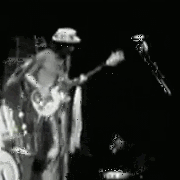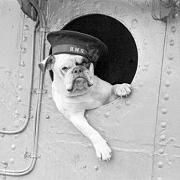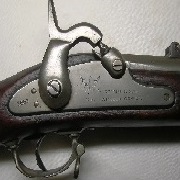|
Is it fair to hold Chiang Kia-Shek responsible for “losing” China because of strategic mistakes he made or was the situation post WWII largely unsalvageable for the Nationalists?
|
|
|
|

|
| # ? Jun 7, 2024 10:37 |
|
Shimrra Jamaane posted:Is it fair to hold Chiang Kia-Shek responsible for “losing” China because of strategic mistakes he made or was the situation post WWII largely unsalvageable for the Nationalists? Mao got all the good captured poo poo after WWII iirc.
|
|
|
|
The missteps of the pre-Japanese-invasion Republic of China under his leadership are why he lost most of China and had to run away, ultimately. And all the missteps during the war and immediately after too.
|
|
|
|
Such as?
|
|
|
|
The same sort of stubbornness that kept Chiang from making peace with the communists before ww2 also kept him from making peace with the Japanese and also kept him from making peace with the communists after ww2(when Marshall was trying to broker peace and Stalin was ambivalent about Mao). Chiang massively overplayed his hand after the war while his domestic economy was a basket case because in theory he had a much larger and better army than the Communists.
|
|
|
|
Why would he want to make peace with the Japanese considering they were ravaging his country?
|
|
|
|
Shimrra Jamaane posted:Why would he want to make peace with the Japanese considering they were ravaging his country? I'm not criticizing Chiang for not making peace with the Japanese- i'm saying that his absolute stubbornness in this regard had a mixed effect. He also tended to overstate his own importance to the Allies and had effectively lost the war with the Japanese by the end of 1941. While he never really made peace with the Japanese, the Japanese had largely rendered him the warlord of Chungking and mostly irrelevant to the war. This attitude of his makes his refusal to take Marshall's opportunity to at least get a temporary peace, demobilize some of his armed forces and get the country on a better footing make sense from a personality perspective. During negotiations with the Communists after the war, he took a hard line, believing through his congressional contacts that the US would never let him fall, despite Marshall trying to explain how precarious his position actually was. This stubbornness did not engender the sort of trust and amity needed for the US to provide the support he needed. This meant that despite the Communists actually attacking US Marines who landed in China, Chiang still managed to piss off influential US leaders more than Zhou and the CCP did. It was enough to prevent a full scale intervention to save Chiang once the war went badly.
|
|
|
|
luxury handset posted:thought this thread might find this interesting but the city of atlanta is close to reopening the cycloramic painting battle of atlanta after a new building was constructed for it and a multi year restoration I saw the Atlanta cyclorama, probably about 20 years ago. It was kind of like a carousel in that you sat in this central location and it slowly turned around the room as each section was explained. I was the weirdo who wanted to see it again, after viewing it as a small child. It was a pretty dry exhibition the last time I saw it, though the Civil War was never my cup of tea.
|
|
|
|
i still haven't finished Forgotten Ally, about china's war, but the Nationalist government intentionally breached the Yellow River dikes in 1938 to delay the Japnaese advance on Wuhan by a few months (debatably), killing hundreds of thousands of their own citizens without warning. perhaps justifiably, this became a gigantic PR problem. i believe the book was quite specific that it was Chiang Kai-Shek's own personal decision. apparently the flooded area became a major recruiting center for the Communists, who actually tried to stop the Nationalists from rebuilding the dikes after the war, i hope the book discusses that edit: here's a reasonably good map that puts it in perspective - they didn't just make a flood, they redirected the sixth-longest river in the world into the third longest river in the world for a decade. it's kind of remarkable 
oystertoadfish fucked around with this message at 06:10 on Feb 13, 2019 |
|
|
|
Marxist-Jezzinist posted:I would not join the Small Swords rebellion Why does the name make you nervous? It's no different than the sicarii (small daggers) of Judea.
|
|
|
|
oystertoadfish posted:i still haven't finished Forgotten Ally, about china's war, but the Nationals government intentionally breached the Yellow River dikes in 1938 to delay the Japnaese advance on Wuhan by a few months (debatably), killing hundreds of thousands of their own citizens without warning. perhaps justifiably, this became a gigantic PR problem for the Nationalist government. i believe the book was quite specific that it was Chiang Kai-Shek's own personal decision. The region didn't recover until well after the war because all the infrastructure was destroyed, on top of shifting the river south 500 kilometers and covering the most fertile farmland in China with silt so it was almost useless as farmland. The latter is basically because this was a massive propaganda coup for the CPC and the fact the dikes were broken was a literal monument to the incompetence of the KMT in their eyes, so they were worth more broken than whole. Also it would be better PR for the communists if they ended up fixing the KMT's mess.
|
|
|
|
Shimrra Jamaane posted:Such as? In short the Republic Of China era quickly devolved into a lack of democracy and widespread warlordism - Chiang Kai-shek's faction eventually managed to push out other factions and subdue most of the warlords by the late 20s. The period of time before invasion where Chiang Kai-shek had mostly unified control of most of the country was marked by him also running China as a military dictatorship that had a shitload of corruption and similar bad practices and they didn't really crack down on that stuff. And of course plenty of repression of any rivals. Mao and his general faction of supporters in the Communist Party of China were able to achieve their leadership positions via that era's crackdowns on the left wing as a whole which took out a lot of rivals - they were also successfully able to exploit behavior of the central government against people out in far flung provinces to build up support that would prove vital for the Communist's control through the course of the war and then the civil war afterwards. fishmech fucked around with this message at 06:21 on Feb 13, 2019 |
|
|
|
oystertoadfish posted:i still haven't finished Forgotten Ally, about china's war, but the Nationalist government intentionally breached the Yellow River dikes in 1938 to delay the Japnaese advance on Wuhan by a few months (debatably), killing hundreds of thousands of their own citizens without warning. perhaps justifiably, this became a gigantic PR problem. i believe the book was quite specific that it was Chiang Kai-Shek's own personal decision. The desperation that fueled this decision was partially the result of Chiang trying to gain international recognition by using up some of his best troops fighting in Shanghai. Even the German advisors recognized the KMT's army as a bloated mess that needed to be pared down before the war.
|
|
|
|
sullat posted:Why does the name make you nervous? It's no different than the sicarii (small daggers) of Judea.
|
|
|
|
drat i thought i could get away with taking like ten minutes to edit my post also the book said that the officers in charge of the troops digging up the levees promised them they would find good wives - this was apparently in reference to the common belief that someone who did something unspeakably horrible, like digging up a levee, would be denied a family and descendants. so they weren't feeling great about it on-site, apparently Chiang flew western journalists over the flooded area and loudly blamed it on the Japanese, and i think some people bought that story just out of shock, but i get the impression that the truth came out over the years also in that book i learned that he took some of his best troops out of china to go get slaughtered in Burma, although i guess a lot of it was stillwell's fault - the supply lines from Burma were of strategic importance but it still seems like a colossal blunder to wander off into Burma during your existential total war crisis. i guess he wanted to show the brits he was a good ally now that they were in the war with him? oystertoadfish fucked around with this message at 06:17 on Feb 13, 2019 |
|
|
|
oystertoadfish posted:drat i thought i could get away with taking like ten minutes to edit my post Chiang could send troops to Burma because the Japanese had mostly gotten what they wanted out of mainland China and were using it as a strategic reserve from which to pull troops. People tend to think of China like the USSR fighting Germany, but as I said in a post much earlier- China by the end of 1941 was in a situation akin to post Brest-Litovsk Russia. His army was starving and almost completely ineffective against an opponent like the IJA by that point and he effectively had a truce in China proper with the Japanese. When the US tried to base B-29s in China in 1944, the Japanese easily overran the fields. It took a lot to get the KMT to go back on the offensive, and even by the end of the war, Chiang desperately needed the Japanese to stay in the coastal cities and wait for the US to airlift KMT troops there to keep CCP forces from coming in behind them.
|
|
|
|
What’s the best book that covers the Chinese Republican and Civil War era?
|
|
|
|
that's interesting, and the B-29 field overrunning is operation ichi-go i take it? i'd assumed there were other offensives like that. i guess a tacit truce like that isn't something that's easily simulated in a wargame so to what degree were the Nationalists helpless? did the Japanese advance as far as they could given supply lines and guerrillas and such, or could they have taken Chongqing if they had really wanted to?
|
|
|
|
oystertoadfish posted:that's interesting, and the B-29 field overrunning is operation ichi-go i take it? i'd assumed there were other offensives like that. i guess a tacit truce like that isn't something that's easily simulated in a wargame If the Japanese wanted to commit more troops, supplies, and air assets to China in the midst of a large scale war with the US and UK, yes, they could have taken Chongqing. The IJA probably correctly realized it wasn't really worth it, though- they controlled the most economically significant parts of China and hoped the collaborationist government would bear some kind of fruit. Four years of industrialized war as a poor country that's lost most of its economic base is devastating, and combining that with being cut off from foreign aid put the KMT's army on standstill. Guerrillas were a problem for the Japanese, but didn't really contest control of rail lines and cities.
|
|
|
|
HEY GUNS posted:when i was an acw reenactor they made me grind the coffee every morning because i was the youngest did that involve some kind of grinder apparatus or just mortar, pestle, and grumbling
|
|
|
|
Grand Prize Winner posted:did that involve some kind of grinder apparatus or just mortar, pestle, and grumbling all kind of commercially made small grinding mills were available as early as the early modern period for grinding coffee, spices, grain, and what have you. one early crank operated automatic gun was nicknamed "coffee mill" https://www.youtube.com/watch?v=gcsviX3clZU Mr. Fall Down Terror fucked around with this message at 07:00 on Feb 13, 2019 |
|
|
|
Grand Prize Winner posted:did that involve some kind of grinder apparatus or just mortar, pestle, and grumbling https://www.amazon.com/Bazaar-Anato...F2T473BWTEJ2AW8 just much bigger and made of wood. The spinnning handle was the same.
|
|
|
|
derp
|
|
|
|
derp
|
|
|
|
oystertoadfish posted:mechanical computers are amazing. I wish I could link to that video tutorial for operators of the crazy gunnery control poo poo they put on the big ships, someone else probably can I really really really really want a curta e: if anybody is looking for my SS gift e2: Secret santa, JUST TO CLARIFY Don Gato posted:My grandpa has one of those hand cranked calculators and I used to love the sound it made while it was working, it made math feel even more satisfying than usual. Did he ever try to take it apart? I was reading an article on it an apparently everybody who ever gets their hands on one at one point has the bright idea of breaking it down and taking a look under the hood. Very few are capable of putting it back together, of course Milo and POTUS fucked around with this message at 13:42 on Feb 13, 2019 |
|
|
|
Milo and POTUS posted:I really really really really want a curta Gott(fried Leibniz) mit uns?
|
|
|
|
Panzeh posted:If the Japanese wanted to commit more troops, supplies, and air assets to China in the midst of a large scale war with the US and UK, yes, they could have taken Chongqing. The IJA probably correctly realized it wasn't really worth it, though- they controlled the most economically significant parts of China and hoped the collaborationist government would bear some kind of fruit. The Japanese desperately wanted to take Chongqing and it was a point of contention with the Emperor. When the IJA committed to the war in China, they expected Nanjing to cave and give into their demands, surrendering more of their autonomy. It's very obvious that the IJA or the government in Tokyo had no real idea about what to do with China at all and a coherent plan was never conceived or implemented. Jiang knew he wasn't able to defeat the Japanese in 1937, the Japanese knew they would never defeat China after 1937, and his plan before the war even started was to hold out until the US or UK intervened. He expected Japan would have collapsed from the strain of the war, eventually surrendering. He also never would have and never should have surrendered because it was very much apparent from Manzhouguo what would happen in the best scenario. The biggest issue with the Guomindang before 1937 is that it was a big tent party that had more in common with Arab Socialist parties than it did with any other. Jiang was constantly at odds with political rivals, Wang Jingwei was a constant one, and generals/warlords, who usually did what they wanted, took what they wanted, and would happily replace Jiang if given the chance. The Guomindang doesn't become a cohesive and effective party until after the exile to Taiwan because most of the factions were eliminated and Jingguo introduced Soviet style party reforms. On why Jiang lost the civil war, he gambled too many times and went bust during the second phase of the civil war. He didn't do enough to win over American support, they were withholding arms the RoC had already paid for, he allowed the Japanese to remain as occupiers until RoC forces arrived to prevent a communist takeover, and most of the remaining Japanese war materials ended up in the hands of the CCP due to the USSR throwing them a bone. Mao also didn't follow Stalin's directions either and a coalition government wasn't formed, not that I blame Mao on that one at all.
|
|
|
|
A while back I discovered a brilliant buddy of mine who has a PHD in computer science did his dissertation on "primitive computing" and so we've had numerous discussions since then about the various military computers of the first half of the 20th century. I'll try and summarize what he's told me about fire control computers which will likely come off as a layperson rambling about an unfamiliar topic. They roughly classified computers as "simple", "complex" and "super". The way they were classified was based on how many "spools" they had. As I understand it, "spool" in computing now has a somewhat different definition, but at this time, it literally referred to a mechanical spool. Like, a shaft with some number of gears or cogs or other primitive storage devices on it. Simple computers only had one spool, and could only do one equation. IE, they could do a problem with maybe 3 inputs. Complex computers had multiple spools, and could do more complex problems, the potential number of inputs and outputs increasing with the number of spools. This was all relatively easy even by the standards of the time...even a complex computer wasn't a batshit crazy electromechanical nightmare. The crazy poo poo started with super computers. These were defined as computers that could handle dependent variables. While this doesn't seem like that big of a deal to us, at the time, it was revolutionary, and also really, really impressive technically. While a complex computer could handle several independent variables and spit out a solution, it could never be dynamic, nor could it adjust to simple changes...that's why the early fire control computers all had massive "gunnery table" books as their constant companions. Adding dependent variables made poo poo really, really complicated though, because each dependent variable not only needed its own personal spool, but also a spool for every related variable. This caused the number spools required to grow exponentially with the number of variables. Like, a complex computer with 3 variables needs 4 spools: one for each variable, and one for the output. A super computer with 3 variables, though, needed 9: one for each variable, one to link each dependent variable, one to link the outputs of each link, and one for the output (note: someone can check my math here: this is me trying to describe something that was scrawled on a napkin). The Mark 1 computer had....a lot of inputs, and a lot of them were dependent. Firing a shell was a basic trigonometry problem (direction and elevation are all you need), so that calculation only needs one spool, right? Let's add in "our ship's speed." Now you have a dependent variable, and it affects both direction and elevation. So, you've just quadrupled your required number of spools. Now add in....15 or so other variables. Wind speed, temperature, propellant, ammo, target position, target angle, fuze type, humidity, etc etc. Each one of these was dependent to one degree or another. So, even with so few variables, you end up needing THOUSANDS of spools. THEN they added in the ability to adjust poo poo on the fly. This was just as badass...it required some number of spools to be able to dynamically feed their data to a kind of motor, that would carefully manipulate each dependent spool in order to maintain an accurate solution even as targets were moving. The Mk1 was one of the pinnacles of this, but probably the more useful application was on submarines...they could maintain a firing solution for a moving target (granted, only in one dimension) which was super useful for a sub attacking a convoy or something, where a group of ships were all moving at the same speed and direction. As cool as the computers were though, they were still totally reliant on human sensory input (at least until radar laying came along), which was always pretty hit or miss. I found this amusing...that a bunch of computer geniuses spend years building these amazing machines only to be undone by some ensign who can't work the rangefinder under combat conditions.
|
|
|
|
Alchenar posted:I recall this from one of Max Hasting's Normandy/post-Normandy books - around 6 months experience was apparently 'peak veterancy' for a unit, after which the benefit of experience starts to get overwhelmed by the feeling that the law of averages is going to catch up with you. Thalantos posted:I'd imagine! bewbies posted:This is pretty much spot on for everyone who has fought a war ever. The US army also now has mountains of data about how this works across multiple deployments, which is pretty fascinating. Some tidbits off the top of my head: Really interesting stuff!
|
|
|
|
luxury handset posted:all kind of commercially made small grinding mills were available as early as the early modern period for grinding coffee, spices, grain, and what have you. one early crank operated automatic gun was nicknamed "coffee mill" My friend, in the ACW you have personal firearms as luxury items with all the trimmings, including a built in coffee grinder.  That's the butt of a sharp's carbine with a coffee grinder built in. They were also theoretically able to grind corn or wheat/oats/etc. if you wanted to make bread, but my understanding is that most soldiers used them for coffee as the US Army at least was beyond issuing soldiers a sack of corn and telling them to make bread. I'm sure the hard tack was much better. YMMV on that, I've read conflicting information on that specific issue, but everyone seems pretty in agreement that they were used for coffee.
|
|
|
|
Cyrano4747 posted:My friend, in the ACW you have personal firearms as luxury items with all the trimmings, including a built in coffee grinder. Yeah this one was one of those common uncommons. I've seen it on more than one, some earlier rifles as well. It's cooler than poo poo.
|
|
|
|
On a side note, the ACW is so loving wild for all the personal weapons that show up. Yeah, the government is going to be issuing you a gun. This probably isn't even theoretical, at least unless you're in the late war south or something. But what if it's a lovely gun? What if you want a nicer gun? What if you've been reading the 1861 edition of Guns & Ammo and are lusting after one of those fancy new repeating lever actions? What if you're a gentleman of means and distinction and want to command a bunch of dudes who all have the latest and greatest? Well, if you can afford to buy your own poo poo or outfit your own regiment, go hog loving wild. Logistics might be a pain in the rear end, so better go in on a bulk buy of ammo or something. You just end up seeing some utterly wild poo poo here and there. Basically if it existed during the war chances are a couple were used in it. Mostly it was rich people, but here and there you would find normal soldiers investing a serious chunk of pay in a nice rifle because, hey, everyone wants a nicer gun than the enemy.
|
|
|
|
Cyrano4747 posted:On a side note, the ACW is so loving wild for all the personal weapons that show up. Yeah, the government is going to be issuing you a gun. This probably isn't even theoretical, at least unless you're in the late war south or something. But what if it's a lovely gun? What if you want a nicer gun? What if you've been reading the 1861 edition of Guns & Ammo and are lusting after one of those fancy new repeating lever actions? What if you're a gentleman of means and distinction and want to command a bunch of dudes who all have the latest and greatest? Yep. Thats how the Sharps Rifle, Frank Wesson Rifle, Burnside Carbine, Smith Carbine and Spencer Rifle (for starters) got into "mass usage". Especially the Sharps and Spencer.
|
|
|
|
EvilMerlin posted:Yep. Basically imagine if ACW 2.0 kicked off today and, while the M4 was hypothetically the issue arm for the Army, everyone was going to the local gun shop and buying whatever the gently caress they wanted if they could afford the cost. Accessories are going to be bug gently caress nuts and here and there you're going to see some truly bizarre gun on the line.
|
|
|
|
Cyrano4747 posted:My friend, in the ACW you have personal firearms as luxury items with all the trimmings, including a built in coffee grinder. Suck it Red Ryder Cyrano4747 posted:On a side note, the ACW is so loving wild for all the personal weapons that show up. Yeah, the government is going to be issuing you a gun. This probably isn't even theoretical, at least unless you're in the late war south or something. But what if it's a lovely gun? What if you want a nicer gun? What if you've been reading the 1861 edition of Guns & Ammo and are lusting after one of those fancy new repeating lever actions? What if you're a gentleman of means and distinction and want to command a bunch of dudes who all have the latest and greatest? Do modern US soldiers have to use the weapons they are issued? I've heard that GIs in WWII would snag MP40s whenever they could, what about today? zoux fucked around with this message at 17:07 on Feb 13, 2019 |
|
|
|
I think I know the answer to this already (no loving way basically) but what is the policy of the modern US Army on usage of personal weapons? I ask because I recall stories at least up to WW2 where guys would get guns in the mail and use them. Was there a point at which there was a hard stop?
|
|
|
|
bewbies posted:As cool as the computers were though, they were still totally reliant on human sensory input (at least until radar laying came along), which was always pretty hit or miss. I found this amusing...that a bunch of computer geniuses spend years building these amazing machines only to be undone by some ensign who can't work the rangefinder under combat conditions. Here is a scan of the manual for operating the TDC. As an aside, working on Pampanito provided an interesting example of the difference between what is in the official records and what happened. In very, very brief terms - the US Sub service promoted aggressive commanders and quickly relieved commanders who were thought to be timid. In one engagement the Pampanito found a Japanese ship and sunk it with a relatively long-range torpedo shot. The next day the sub's captain went up into the conning tower and re-ran the engagement with the Torpedo Data Computer to get different numbers - ranges, angles of bearing, etc - to use in the ship's log to make it appear that he had been much more daring and had closed to a much closer range to take the shot than he had in reality. This was an "open secret" among the crew, but unless you knew this and only went by the official ship's log you'd never be able to tell what had actually happened.
|
|
|
Cyrano4747 posted:On a side note, the ACW is so loving wild for all the personal weapons that show up. Yeah, the government is going to be issuing you a gun. This probably isn't even theoretical, at least unless you're in the late war south or something. But what if it's a lovely gun? What if you want a nicer gun? What if you've been reading the 1861 edition of Guns & Ammo and are lusting after one of those fancy new repeating lever actions? What if you're a gentleman of means and distinction and want to command a bunch of dudes who all have the latest and greatest? Yeah, I was making up a wiki for GURPS conversions of various 1875 firearms and ended up with a huge database of guns. Just about every inventor got it into their head to make a gun at least once, especially when the Civil War kicked off and they realized that there was a big market to make money off of it. Both sides in the war made orders for guns from private manufacturers with little concern for compatibility beyond caliber, individual soldiers bought better (or what they thought were better) replacements or supplements for their issued weapons, and officers made orders for a few dozen or a few hundred guns from someone local to equip their force. Plus a ton of French, British, and Belgian guns being shipped overseas; the Austrian Lorenz rifle was the third most common rifle of the war and the second most common was the Pattern 1853 Enfield. Shawk & McLanahan tried producing a revolver, but were only able to make 50 before the funding ran out and all but one (which was presented to a Confederate officer) were sold to local civilians or Confederate soldiers. You also saw a lot of really unusual revolvers because of Rollin White giving Smith & Wesson the exclusive patent on bored-through cylinders for cartridges. Some like Daniel Moore just infringed on the patent until a court ordered them to stop, while others found ways to get around it. Moore replaced his illegal gun with a "teat-fire" that had a stubby little nipple full of priming compound in the back that would poke through a smaller hole. The Slocum revolver used common .32 rimfire ammunition but had sliding covers on the side of the cylinder that could be pushed forward to let you load the chamber from the side. Going back even farther, Colt had a patent on the hammer rotating the cylinder (!) so you saw revolvers made in the 1850s that required the user to cock the hammer and then manually rotate the cylinder. And because firearms technology was rapidly developing as inventors took advantage of the fresh market for guns, a ton of innovative designs came out that may or may not have been good ideas. John Walch made a .36 caliber military revolver and a .31 caliber pocket revolver that used a superposed load in each chamber to hold double the capacity of a regular revolver; you had two hammers and either two triggers right next to each other or a spur trigger that dropped both hammers in sequence. Sounds great until the first shot doesn't go off and the second one does, blowing the gun up. The Savage 1861 Navy revolver had a ring trigger under the regular trigger that cocked the hammer, which got you speeds close to a double-action with practice. Cofer made a giant "rampart rifle" firing a high-velocity .40 caliber cartridge for use defending fortifications. There were grenades that tried to have an all-ways impact fuse by covering the outside with percussion caps, which also meant they would explode if you accidentally dropped them. I don't think there's ever been an accurate count of how many different guns were in use in the Civil War, or if such a count is possible. As Shawk & McLanahan demonstrate, you could end up with a few dozen people out of 3+ million soldiers using a revolver that was made specifically for them. Ice Fist posted:I think I know the answer to this already (no loving way basically) but what is the policy of the modern US Army on usage of personal weapons? I ask because I recall stories at least up to WW2 where guys would get guns in the mail and use them. Was there a point at which there was a hard stop? It was basically a hard stop after World War II if you weren't special forces as far as I know. Obviously nobody will fault you for picking up an enemy AK after your rifle takes a bullet or you run out of ammo, but the modern military is especially obsessive about making sure that you use what you're given and come back with it in the end. People have gotten into serious trouble for trading weapons or carrying something unauthorized that they picked up in the field.
|
|
|
|
|
I remember back in the early Iraq war, I think, Zack parsons tried to organize an SA fundraiser to buy body armor for troops, but iirc the DoD wouldn’t even allow that. E: realized that sounded pejorative; clarifying that I’m not critiquing the “don’t mail combat gear to war zones” policy, just chiming in with a relevant anecdote Ainsley McTree fucked around with this message at 17:17 on Feb 13, 2019 |
|
|
|

|
| # ? Jun 7, 2024 10:37 |
|
Ice Fist posted:I think I know the answer to this already (no loving way basically) but what is the policy of the modern US Army on usage of personal weapons? You can own/use privately owned weapons all you want, just not in an official capacity. If you live on post they have to be declared and stored properly, otherwise the army doesn't really care. On official duty or deployment, privately owned weapons are strictly forbidden, but units kind of vary in how strict they actually are about that stuff. Some commanders did turn a blind eye to guys bringing personal weapons along, which broke very badly for at least one company commander I'm aware of when a couple of his soldiers were found packing hollowpoint rounds in privately owned sidearms. In like 06-07, more customizable stuff started appearing, and you had some latitude about what you could mount on your weapon. Some units were stricter than others with this also, but everyone made enthusiastic use of their GSA accounts to buy cool sights and flashlights and crap.
|
|
|
































